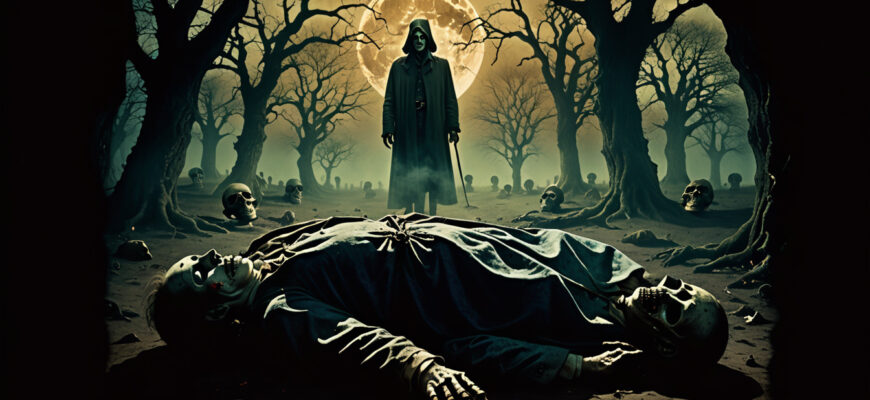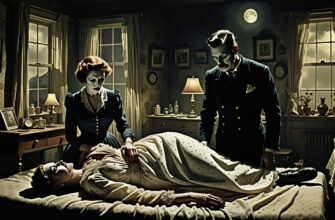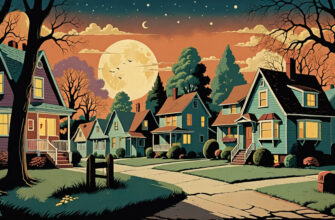Ever wake up from a dream where someone you’ve lost showed up like they never left? Maybe they smiled. Maybe they yelled. Maybe they just stood there like a ghost you weren’t ready to face. Dreams about dead people aren’t casual. They’re the kind that stick with you all day, leaving a question mark behind your every thought: What does it mean when a dead person appears in your dreams?
Sometimes these dreams feel like a comfort blanket — like your brain is reaching for them because your heart still aches. Other times, they come as a storm: full of guilt, confusion, or even fear. Whether it’s your grandma just sitting beside you wordlessly, or an ex warning you about something in a dream that feels way too real, these experiences feel like more than just brain static.
You’re not imagining the weight of it. You’re not weird for wondering. And you’re definitely not alone. From emotional echoes to spiritual visits — here’s what might really be going on when someone who’s passed walks back into your sleep.
What It Means When You Dream About A Dead Person — The Basics
When the dead show up in your dreams, your brain might be digging for something it can’t quite say during the daylight hours. These kinds of dreams often act as emotional checkpoints, especially after you’ve been through a loss that shook your world. But under the surface, they’re rarely just about the person who died — they’re about you, and what you’re still holding onto.
- Guilt and unfinished business: Maybe the last conversation ended in silence or a fight. Maybe you never got to say goodbye. That ache doesn’t vanish—it turns up in dreams, sometimes in distorted or surreal ways.
- Searching for comfort: If you dream of a gentle presence or loving memory, your mind might just be trying to steady itself. It brings them back because a part of you still needs them.
- Processing trauma: For those dealing with complicated or sudden loss, the shock doesn’t fade easily. Nighttime becomes a space where the pain leaks through, and your brain starts rewiring itself around the trauma.
Then there’s the big question: is this dream just your subconscious, or is it something more? Some see it as simple memory replay. Others swear it’s a real moment of connection — a visitation. Truth is, it could be both. PTSD, depression, and grief can alter how we sleep, what we dream, and how intense those dreams hit. But across cultures, this boundary between memory and magic gets blurry, fast. So if the dream felt like more than just brain fog? That matters too.
Common Emotional Themes In Dreams Of The Deceased
Grief dreams don’t come in just one flavor. Some show up soft. Others slam down like a weight you almost forgot you were carrying. These emotional storylines help make sense of what your brain’s trying to unbox.
Peaceful vs Disturbing Visits
Not all dreams about dead people feel the same. There are nights where the person is just… there. They sit in silence next to you, or give you a smile that lets you breathe again. Those ones? They feel like grace. But then there are the visits that come with edge — when the dead seem off, angry, or say things that leave you waking up with goosebumps. Your brain might be trying to sort through past dynamics, unresolved tension, or fear of what was never fixed.
The Guilt Factor
Ever wake from a dream where they’re disappointed in you, or where you’re frantically apologizing? Guilt leaves fingerprints like that. You might still blame yourself — for not calling more, not being present, not making peace. Survivor’s guilt can echo through years of dreams if it never got a voice in waking life. That pain often masks itself behind strange or heartbreaking dream scenarios.
Loss And Identity
When someone important is gone, your own reflection can shift. You’re not just grieving them — you’re grieving who you were with them. Some people dream of dead loved ones giving advice, watching over them, or judging who they’ve become. It’s less about their opinion and more about your own self-doubt, fear of failure, or hope that they’d be proud anyway.
Yearning For Closure
Imagine waking up the second after the dream-version of them hugs you and says, “I forgive you.” Or asks, “Why didn’t you come?” That late-night conversation might not be real — but the healing that trickles in from it? That absolutely is. Sometimes, your subconscious serves up the confrontation or conversation you were too scared (or too late) to have.
Frequency And Triggers: Why Now?
Ever notice how some dreams hit harder around a birthday, or smell triggering? Our senses can take us time-traveling without warning. A single note of their old cologne or a song from that road trip can crash into your dreams by accident — but they feel anything but accidental.
| Trigger | Possible Reaction |
|---|---|
| Anniversary of death or birthday | Dreams reactivating the grief loop |
| Major life events | Births, weddings, career shifts may evoke longing for their support |
| Smells, songs, places | Emotional flashbacks pulling them into dream space |
| Ongoing stress or transitions | Old losses resurface when life feels shaky |
Some folks confront grief head-on. Others avoid it, stuffing it deeper. But suppression doesn’t mean it’s gone — it just speaks louder in sleep. The brain doesn’t forget emotional loose ends, even if we pretend to. When someone you loved (or never resolved things with) knocks on your dream door, it might just mean your emotional inbox is full — and it’s asking you to read what’s been left unread.
When the Dream Feels Like a Message
“Why do I keep dreaming about someone who has passed away?”
That’s the kind of question people whisper at 2 a.m. after waking up from a dream so vivid it feels like more than sleep.
You don’t even want to move because it felt like they were just right there.
Sometimes dreams about dead people don’t feel like typical brain static—they feel like visitation dreams.
Like they came back to say something.
It hits different when the dream isn’t just emotional—it’s orderly.
Maybe you heard their voice offering clear guidance.
Maybe you woke up with a weird sense of calm.
Or maybe they just stared at you with eyes that said, “Pay attention.”
It’s not usually casual.
There’s a weight to those moments that feels outside the normal dream chaos.
In many spiritual circles and Indigenous belief systems, these dreams aren’t seen as random.
They’re messages—sometimes warm, sometimes directive.
In Latinx homes, it might be abuela returning to bless you.
In Black traditions, it may be a sign your ancestors are protecting you.
In some Asian families, dreams of a deceased relative carry warnings or important announcements.
But these vibes can clash depending on how you were raised.
Catholic folks might interpret them through the lens of guilt or spiritual burden.
Others raised around ancestor veneration may see it as a message you better listen to before a candle goes out or a glass shatters for no reason.
Lucid dreamers often say the strangest part isn’t the dream itself—it’s the purposefulness within it.
You remember the flowers they carried, a specific animal that appeared, or a string of numbers that made zero sense until your cousin mentioned their birthday later that week.
Not all symbols are obvious.
Sometimes there’s garbled whispering, crying from the next room, or just a feeling.
The dead don’t always use words—they often speak in patterns, atmosphere, or pieces that feel stitched right from your gut.
When the Dead Are Angry or Ominous
Not all dreams of deceased loved ones are peaceful.
Some leave you gasping, heart slamming, half-awake and totally rattled.
They don’t show up to hug you—they show up to judge you, haunt you, glare at you from the door.
These nightmares might come with accusations.
Or worse—the sensation that you’re being watched through the dream, like their eyes don’t belong to them anymore.
If you’ve ever layered sleep paralysis with this, it feels like hell.
They’re there. You can’t move. And suddenly, their face is inches from yours.
Disturbing dreams about the dead can trace back to trauma—especially if the person wasn’t safe while alive.
Dreaming about someone who hurt you, even if they’ve passed, might be your inner system trying to make sense of pain that never fully resolved.
Sometimes the dream isn’t trying to tell you anything spiritual—it’s just looping the echoes of harm your body never got to release.
What You Can Do After These Dreams
Don’t shrug these off.
Whether scary or sweet, dreams like this deserve attention.
They carry emotional residue—little bits of longing, regret, fear, or even healing—so the best starting point is simple:
- Write down everything you remember—phrases, colors, songs, smells, even how you felt when you woke up.
Next? You don’t have to deal with this silently.
Talk to a friend, therapist, or spiritual elder—someone who won’t side-eye you when you say, “I had a dream and it felt like more than a dream.”
Closure doesn’t always look like an answer.
Sometimes it’s a letter you burn.
A name you speak into a candle’s flame.
A grave you visit just to sit and say nothing.
Ritual helps stitch emotional wounds even when the person won’t ever appear in your dreams again—and maybe that’s a relief.
If these spiritual dreams of deceased loved ones feel never-ending—or you wake up shaking night after night—your nervous system might be screaming for deeper healing.
That’s where trauma therapy, EMDR, or somatic support comes in.
Dreams about dead people aren’t just about grief—they’re about processing.
Whether it’s about who you miss or who you’re afraid to remember, it means something that they’re showing up in your sleep.
Ask the hard questions. Cry about the weird ones. Pay attention.
This isn’t nonsense.
This is the part of healing most people pretend doesn’t exist.








